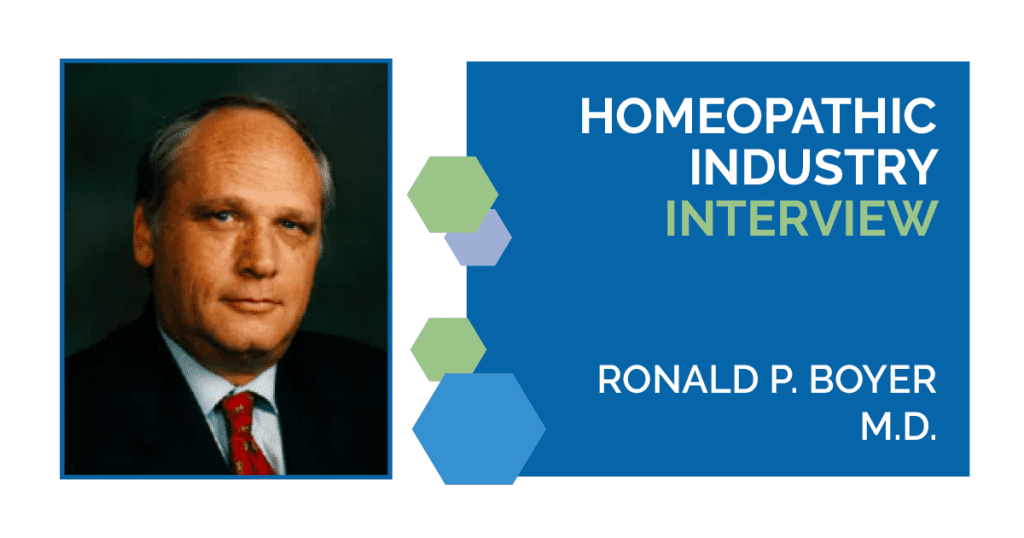Industry Leader Spotlight: Ronald P. Boyer, M.D.

Dr. Ronald Boyer is an internationally recognized authority in the education and practice of homeopathy. He is the president of the Center for Education and Development of Clinical Homeopathy (CEDH), a subsidiary of the International Foundation for Clinical Homeopathy (IFCH), which trains as many as 3,000 doctors in clinical homeopathy in 28 countries throughout the world each year.
AAHP: How did you become interested in homeopathic medicine?
RB: Being born in France and raised in Minneapolis by an American father and French mother, I was taught many ways of European culture, including the use of homeopathy. In fact, my great-grandfather was a homeopathic practitioner before WW1. After finishing high school in France, I studied at the University of Montpellier, where I graduated with a doctorate in medicine. That same year, I obtained my first homeopathic specialty degree from one of France’s premier accrediting homeopathic educational institutions and opened a family medicine practice specializing in homeopathy in Montpellier.
AAHP: How did you transition into teaching homeopathy?
RB: I received a second homeopathic specialty degree from CEDH and started lecturing for the organization in Montpellier and at the University of Montpellier’s pharmacy school. Around 1983 for about 5 years, my lectures for CEDH expanded to New York, Washington, D.C., Chicago, Philadelphia, and St. Louis. By 1992, I moved to Cannes, where I continued to practice medicine while lecturing in Nice.
Around that time, I also studied and started specializing in acupuncture, which led to me lecturing on the traditional Chinese therapy.
AAHP: Your 20 years in practice and your lectures include experience on three continents!
RB: Yes, that same year, the “Technikon Natal,” a post-graduate educational institution in Durban, South Africa, asked me to become the senior lecturer in charge of its medical homeopathic course — the only one accredited by the South African authorities to deliver homeopathic specialization to medical practitioners. I still continued my private practice at that time. And then after a move to Cape Town in 1998, I established a homeopathic clinic and mentored several student interns. The South African Medical Homeopathic Association (SAHMA) also made me an honorary member while there.
AAHP: What do you enjoy most about teaching homeopathy to health care professionals?
Health care practitioners in the U.S. have very little knowledge about homeopathy therapeutics. What they have heard about or even learned is very confusing or even negative. CEDH is a clinical homeopathy school that teaches homeopathy centered on their practice. It is very logical, and the practitioners seem to enjoy it very much. They are capable of prescribing some medicines right away after the first seminar. As part of my welcome, I always state that homeopathy will restore the pleasure of practicing medicine and, by and large, our practitioners agree. It is with great pleasure that I receive their success stories.
AAHP: What interests practitioners about homeopathy today?
The practitioners are mostly interested in learning about an effective, safe therapy, without side effects. They want to recommend the most appropriate tool in their toolbox while adhering to their creed to “do no harm,” but knowledge is often what’s holding them back from recommending homeopathic medicines as a low-risk, first-line of defense.
Practitioners also say their patients are increasingly asking about homeopathy. Like never before, patients are engaged and asking their health care practitioners questions based on Internet information or products now found on store shelves.
AAHP: Thank you, Dr. Boyer. We appreciated your dedication to molding credible next-generation practitioners of homeopathy.
